Diplomacy, Propaganda and Paranoia: The Inside Story of the changes at the CIO
The inside story of how Isaac Moyo was appointed and then removed from the CIO and why Zimbabwe's Intelligence has a new boss and is now taking on a new path
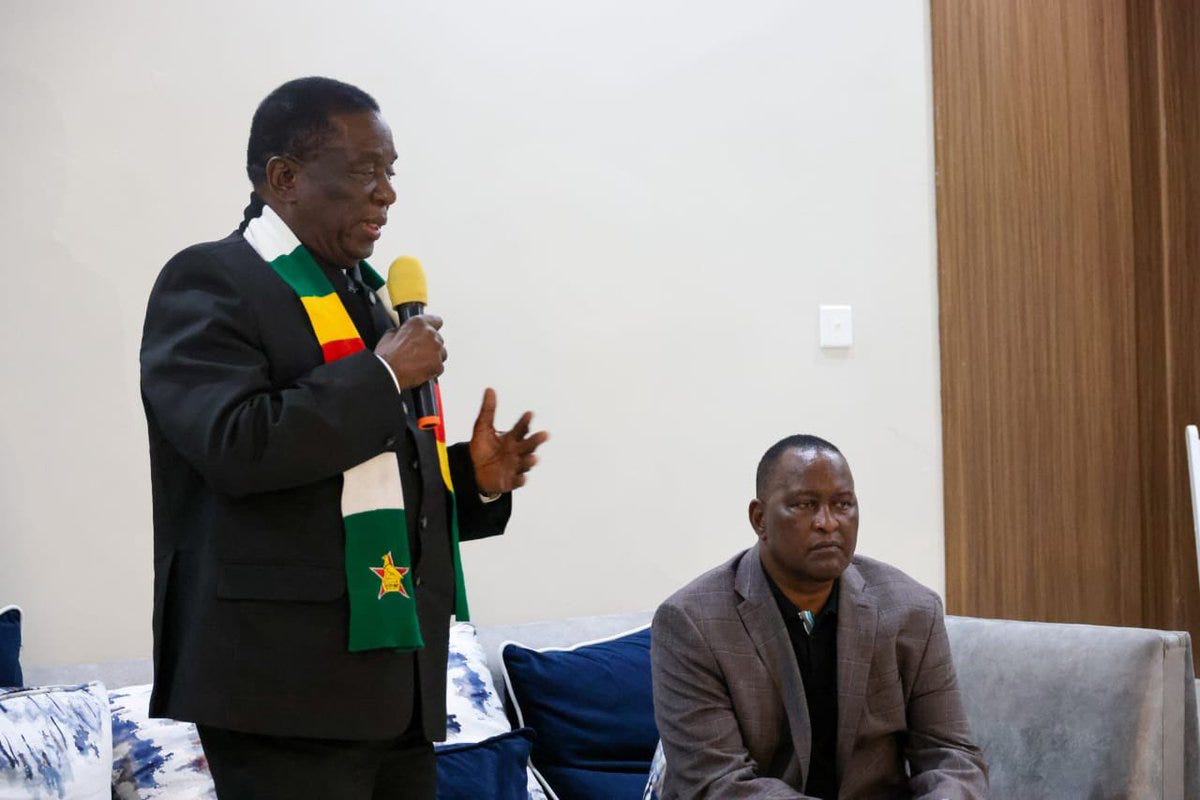
It was at a meeting discussing all possible methods to ensure an Emmerson Mnangagwa (ED) presidency would not only happen but be sustained, back in 2011, that the CIO was flagged as a potential problem.
The roundtable discussion was chaired by the current Minister of Energy and Power Development, July Moyo, and attended by party heavyweights, including the late Senator Shuvai Mahofa, and other key figures like Jorum Gumbo, Special Advisor to the President and responsible for Monitoring the Implementation of Government Programmes.
The CIO was then flagged as a potential banana skin if Robert Mugabe, who had promised to pick Mnangagwa as his successor, changed his mind. Mugabe's change of mind was seen as a real possibility.
After all, he had moved from wanting Joyce Mujuru to succeed him to Mnangagwa, all based on shady intelligence reports that included claims Mujuru slaughtered black chickens halaal style. The reports, seen by Dug Up, are dated March 2010 and delivered during ‘The president’s weekly brief’.
In them, Mujuru was accused bizarrely of mixing the ‘dead’ chicken blood with her menstrual fluids and then performing rituals meant to hasten Mugabe’s natural progression in life.
This high-level delegation did not have the foresight to imagine a coup being a possibility nor did they have the seniority to hold any discussions with military personnel. Senior and high profile as they were, any collaboration with the army was off the table and not a subject of discussion.
The structure and make-up of the CIO is what was discussed. Fearful of the reach of the CIO, July Moyo was tasked with delivering the group’s resolutions and findings to ED in a private meeting.
Although he doesn’t quite remember the date, July Moyo’s driver at the time told Dug Up, that the following day, ED’s entourage was forced to do a U-turn in Kadoma and return to ED’s farm to hear July Moyo’s report.
ED had been in Kwekwe that weekend, but had left earlier than planned - or July Moyo had been late to arrive. When July Moyo realised ED had left, he called him or his number - ED returned and the minutes were delivered.
The meeting, held at July Moyo’s homestead in Kwekwe, flagged two important things. 1, the CIO could be weaponised against Mnangagwa in the same way as it had against Mujuru. 2, should ED become president, by whatever route, the CIO needed to be changed, from top to bottom.
Understand the CIO and the reasons why it was flagged
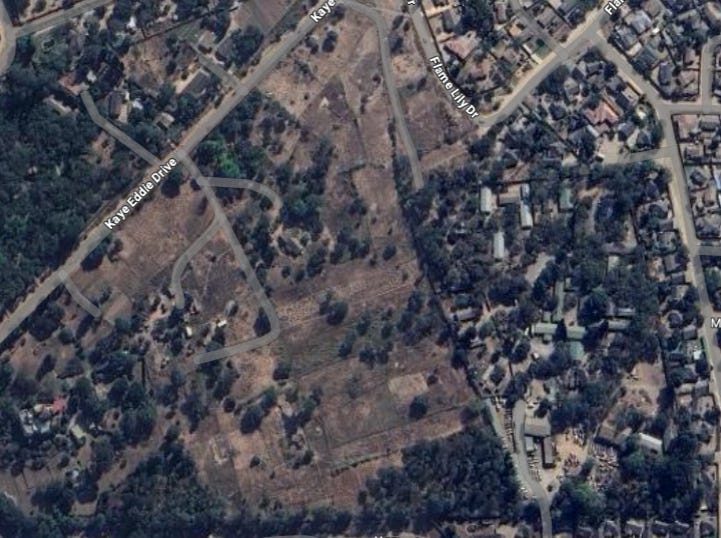
Unlike most intelligence services worldwide, Zimbabwe’s Central Intelligence Organisation (CIO) operates differently. While organisations like the CIA in America, Mossad in Israel, or even the equally infamous NIS in Kenya adopt a ‘national security’ interest, the CIO is a different animal altogether.
Potential recruits spend months at the CIO Training School (TS) in Homestead, Msasa Park. There, in uncertain terms, they are told that the mandate of the CIO and any recruit’s immediate and everyday concern should be to “break or bend the law in presidential interests”.
Under Mugabe, the CIO was loaded with extremely loyal appointees and trainees. It is the one branch of the security apparatus that ED did not have on his side. Neither did he attempt to sway them.
Events accelerated and in 2017 armed soldiers, mostly from the infantry brigade out of Inkom Barracks were deployed to the streets. Mugabe was removed and the rest is common knowledge.
The CIOs were among the first targets of the army. Their headquarters were besieged and their agents were targeted.
The initial reasoning, according to the late SB Moyo was that the CIO, like the ZRPs paramilitary wing, the Presidential Guard and the Airforce were flagged as high-risk colleagues who could try to counter-deploy and attack the infantry brigade which had arrested the president and by all intents orchestrated a coup.
CIO agents who were not at Chaminuka Building (The Headquarters) or Charter House a few streets down, hid their weapons and went underground.
On the first night of the coup, soldiers targeted known CIO vehicles - at the time the very famous Datsun vehicles that low-level operatives drove. So the agents abandoned these and went into hiding.
The diplomat
Isaac Moyo (DG) had been Zimbabwe’s Ambassador to South Africa, for a while, before the military intervention. He was a close ally of ED and enjoyed a personal relationship with him.
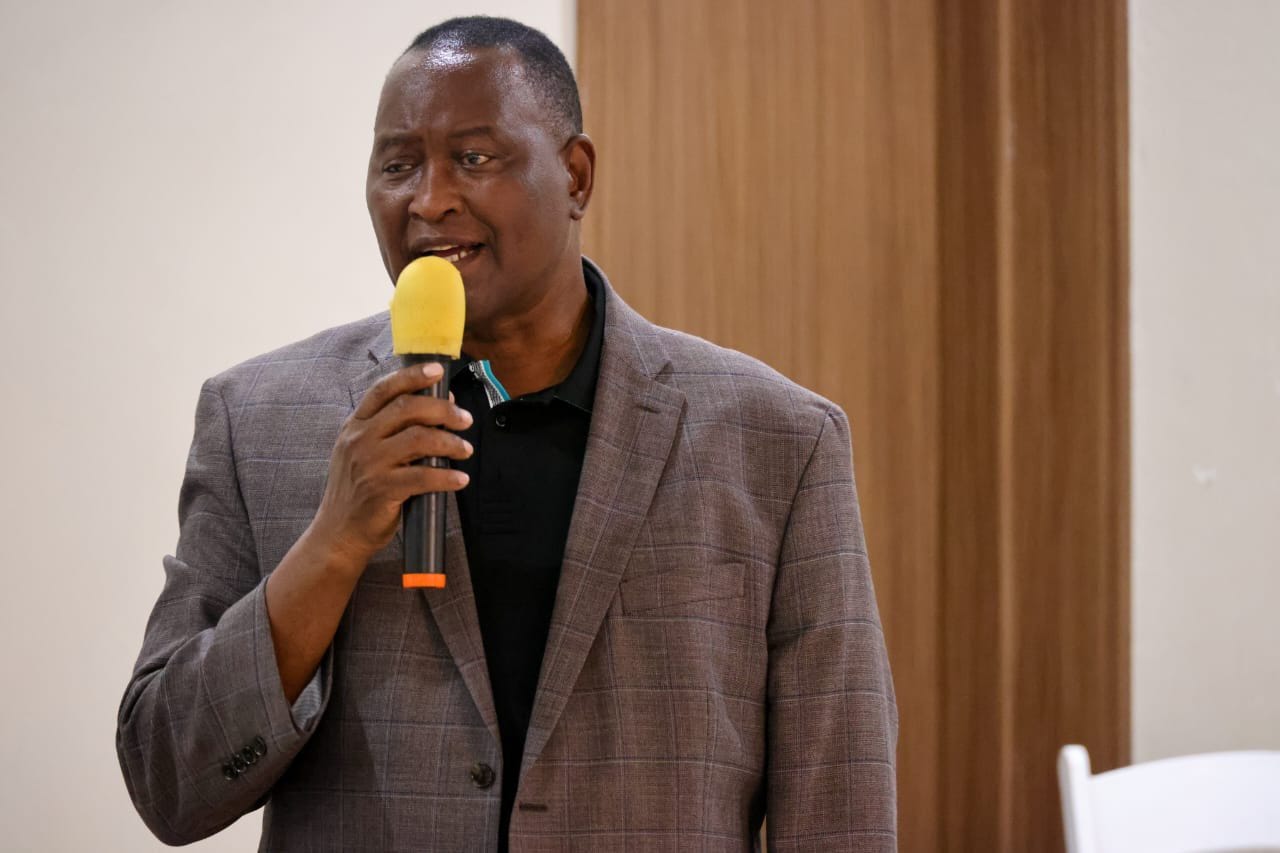
When ED was Vice President, Moyo arranged for him to visit South Africa and meet business leaders and potential investors. Moyo garnered support for ED, especially from white Rhodesians and wealthy white South Africans, seen as having great sway with Washington and London.
The DG also played a critical role in ensuring EDs brand was seen as ‘business friendly’ long before the Zimbabwe is Open for Business line that characterised the current government in its early days.
When it became clear that ED was going to be the next president, Moyo was earmarked as the new Director General of the CIO - hence we refer to him as DG - and also to avoid confusion with Moyo July.
Moyo’s experience was in foreign affairs and diplomacy. He was a career diplomat who had a part in several foreign missions including as a junior officer in Addis.
He was largely credited with fixing affairs at the Zimbabwean Embassy in Pretoria and the Zimbabwean Consulate. Both were seen as nearly useless before Isaac Moyo.
Similarly, Isaac was a different kind of ambassador. He interacted with fierce critics of Zanu PF and created powerful relationships even with political opponents.
This allowed him to garner useful intelligence, which Harare had not been able to get using threats and violence. Even Mugabe was impressed and in a visit in 2016 heaped praise on Isaac’s efficiency.
Via DG, Zimbabweans in exile were pretty much disarmed. Protests against the government - like the vigils often seen in London stopped. Isaac opened the door to the most hostile opposition figures, hosted them for lunch, allowed them to vent, and leveraged these relationships to stop ‘hostility’ towards the government in Harare.
Of course, diplomats have to be competent in intelligence. Foreign affairs departments are spooks. So are foreign missions.
But in the Zimbabwean context, there is a slight difference. CIOs are rarely referred to as agents, but more as operatives - due to the nature of their activities.
The CIO itself (remember the mandate) sets out to break and bend the law to benefit the presidency. But the problem in 2017 was that all those operatives and their bosses knew how to break the law for Mugabe and disliked ED.
So enter the diplomat - tasked with reforming the CIO.
In his early days, Isaac, who had been seen as a good administrator and manager set out to reform the CIO.
Under Mugabe, the organisation was feared and rogue. Spooks are meant to be covert.
CIOs were very overt. They ran around town flashing IDs and guns while intimidating anyone and everyone.
Isaac was tasked with recreating what he had done with the foreign mission in Pretoria. He was tasked with creating a new CIO. One that was covert and one that could penetrate beyond ‘enemy lines’.
Beyond ‘enemy lines’
As Director General Moyo oversaw lots of changes at the CIO. He slowly removed Mugabe’s appointees and pushed a method of ‘intelligence’ that relied on covert surveillance and diplomacy.
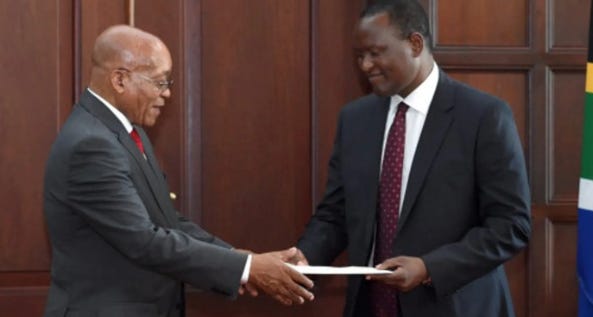
Under Moyo, the CIO all but ensured extremely vocal politicians from the opposition were turned. Intimidation tactics and violence were shunned, including the launch of a new reporting protocol in 2019 that required officers to justify any use of force on civilians.
A separate protocol was introduced that made it a dismissable offence to utilise one’s credentials or status to gain an advantage in a non-state matter. Officers were also now required to surrender their IDs when leaving the office - this to prevent using the powers that come with the ID to intimidate civilians or get favours.
As an administrator, DG preferred a devolved method of leadership. The protocol before Isaac came in was simple. If a deputy or any officer uncovered something important he would take it to the boss and the boss would take it to the President or to the Joint Operations Command Security briefs held on Mondays.
This was seen as a way to protect the head of the CIO. If deputies outperformed their boss and the President saw this - the head of the CIO would lose his job.
It also meant juniors could not send rogue reports to the President. That was the line.
Once Isaac came in, he changed this - much to the annoyance of his assistants.
Under Isaac Moyo, his deputies were given an open line to the President. And if they had a project they wanted to do, and Isaac approved it, he allowed them to run it.
For instance, his deputy Brig. General (Rtd)Walter Tapfumaneyi, proposed running an operation called FAZ. Moyo supported it, but as Tapfumaneyi was an operative, Moyo agreed to let him lead it and report directly to the President.
Similarly, Dr. Gatsha Mazithulela, Deputy Director-General (Special Services) ran several operations and Moyo insisted that these be reported directly to the President.
You are not an operative
But, whilst Moyo’s approach was seen as refreshing and new, problems soon emerged.
Isaac Moyo is and was not an operative. He was a diplomat, competent in the art of intelligence, but leading an organisation that employed thousands of operatives.
This became a problem very quickly.
The open lines created by Moyo, between his juniors and deputies meant ED could receive a report that slams Moyo - and he would never know.
One such report, seen by Dug Up, submitted to the President in July 2023 warned ED that Moyo could cost him the election.
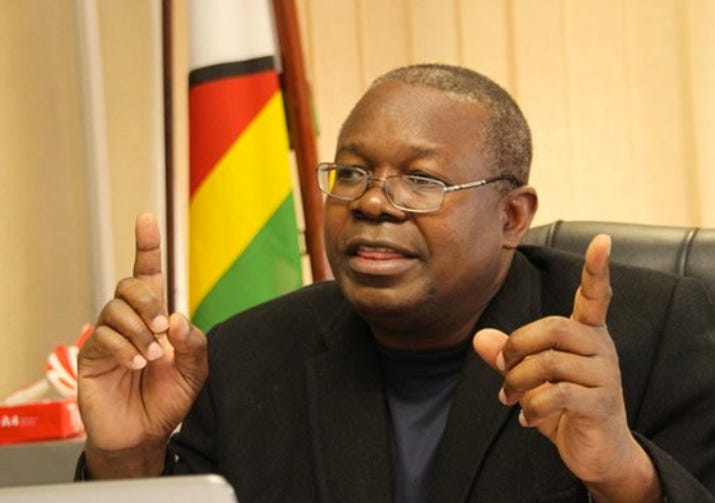
The powering statement was that Moyo had told operatives to be covert but avoid meddling in the election directly, quoting a line that ED had told him during a private visit that - “Shefu vakati musabirira. Hanzi munhu wangu ndoda kumurova zviri smart”. (The President said don’t rig the election. I want to defeat my opponent in a clean manner).
This alarmed Moyo’s deputies and other operatives, who agreed that ED had said those exact words, as noted by the secretary who attended the visit, but, claimed in the report that it was irresponsible as it meant the CIO was being asked to sit back and watch the President potentially lead himself to a loss.
There were other criticisms too.
As early as 2020, ED received reports that claimed Moyo was a nice but ineffective DG. One such report, dated February 15, 2021, claimed Moyo had turned down two projects/ operations that suggested using the COVID-19 pandemic as a smokescreen to kill opposition candidates including Nelson Chamisa.
Dug Up understands the proposal came from the operative division of the CIO and suggested that the elimination of opposition actors could be hidden behind the pandemic.
The DG, Isaac Moyo refused to authorise the operations. His juniors wrote a report saying he was too nice to lead the CIO.
Moyo found out and in a heated internal JOC meeting blasted his juniors. Provincial directors who sat in that meeting told Dug Up it was explosive and Isaac’s deputies flat out told him “You are not an Operative”.
These disagreements would become the staple. Isaac wanted to continue doing things his way. But, the spooks he led were increasingly frustrated.
One spook, who cannot be named to protect his job, told Dug Up that they felt like their hands were tied behind their back.
“We couldn’t do anything. We had to justify any use of force. We couldn’t carry weapons. It felt exactly like the coup. Sometimes you could see something serious but could not do anything because if your hunch was wrong you would lose your job”.
It’s time to quit
As tensions grew, Moyo offered to resign in 2022 and let those “who are better placed take over.”
At the time there had been reports that Moyo was very close to losing his job. His deputy Tapfumaneyi, who ran FAZ was doing a stellar job to the point of outshining Moyo.
Those close to Moyo say he didn’t mind as it was he who preferred a leadership style that allowed subordinates the chance to shine.
It isn’t clear what transpired in 2022, but Dug Up understands, that when Moyo was installed as the DG, the initial plan was for him to reform the CIO and then leave.
The plan of action for that was about 5 years.
But, in conversations with ED, there was an understanding that he needed to continue until he had seen the administrative reforms through - and that once the CIO was a professional force once more, Moyo could then leave.
Tensions continued, however, and especially during the 2023 elections where FAZ pretty much ran as a parallel structure to the CIO.
Within the CIO this caused divisions. FAZ was incredibly well-resourced, while CIO officers were struggling to get fuel allowances to travel and do leg work.
FAZ agents drove luxury vehicles and threw expensive parties where strippers and Moet were the order of the day. Yet, CIO officers often survived on $2 meals.
Morale tanked.
After the elections, the CIO cut funding to FAZ. But the damage appeared to have been done.
In a private discussion, the President and Isaac Moyo discussed a change. Isaac conceded it was time to move on and supported the decision.
A new path….
In January this year, ED pulled the plug. Dr Fulton Mangwanya was installed as the new boss of the intelligence services.
When he was installed, Dug Up understands there was serious confusion. He was announced in a letter that did not mention the fate of Isaac Moyo. The letter also referred to the President’s Department and not the President’s Office - leading to questions about whether this would be a parallel structure.
Isaac himself had not been served with termination paperwork. So he continued reporting to work at the Chaminuka building.
Mangwanya also did not immediately go there and there was limbo about what was happening.
A handover-takeover was not arranged either and it only happened after Mangwanaya and Moyo spoke directly and made private arrangements. This is thought to have happened much closer to a month after the announcement.
But, despite the confusion, the appointment is a new path and a new chapter in the CIO.
DG Mangwanya has an extensive history within the intelligence circles and is largely seen as a very good professional man.
While working as a spook, he was stationed in Kwekwe where he was OIC and developed a close relationship with ED. He later became OIC for Harare Central Police Station - CIO department.
Later he became the head commander at the training school, before becoming the OIC Ferrets.
When he was sent to lead the Parks and Wildlife workers had not received their salaries for 7 months. Within 2 months, those familiar with the situation say this had been resolved.
Mangwanya was appointed largely because he is an operative - the one thing that Isaac was not.
Throughout Isaac’s time as boss, he struggled to get the respect of ordinary officers who secretly mocked him as a “diplomat”. Some of the decisions, like allowing Tapfumaneyi to pull resources to FAZ caused morale to plummet.
Mangwanya however, has directly or indirectly trained most of the the ordinary officers in the CIO.
According to a clearance report endorsing Mangwanya, seen by Dug Up, the new DG was seen as being a good administrator like Moyo, but, ultimately also having the operative capacity to run the organisation in a way that keeps morale high.
A source, close to the presidency, who like all sources in this story, cannot be named, told Dug Up that this signified the completion of the reform of the CIO from Mugabe’s machine to ED’s machine, and that the new DG had a “CV that speaks for itself”.
“He will take the CIO on this new path”, he added.
Reporting for this story was done by Maynard Manyowa…
Our stories are still free for the moment. To help keep them free please share, subscribe and consider donating via GoFundMe here:
You should also consider following us on YouTube and Subscribing here:




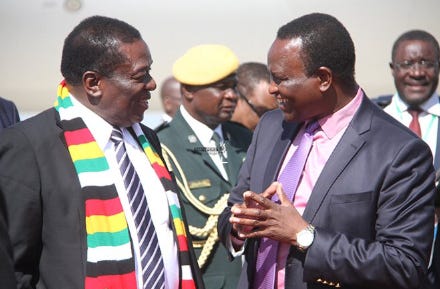
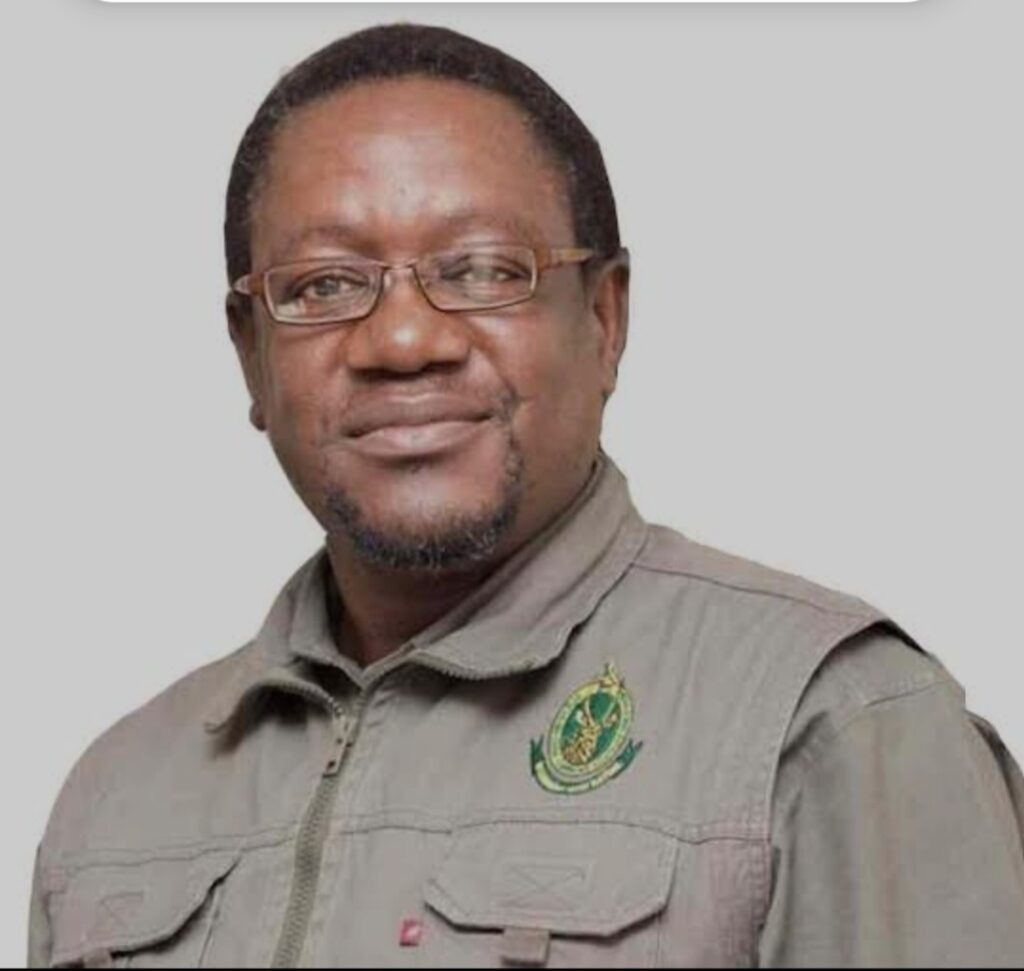
I enjoyed the reading, good work indeed
Keep it up